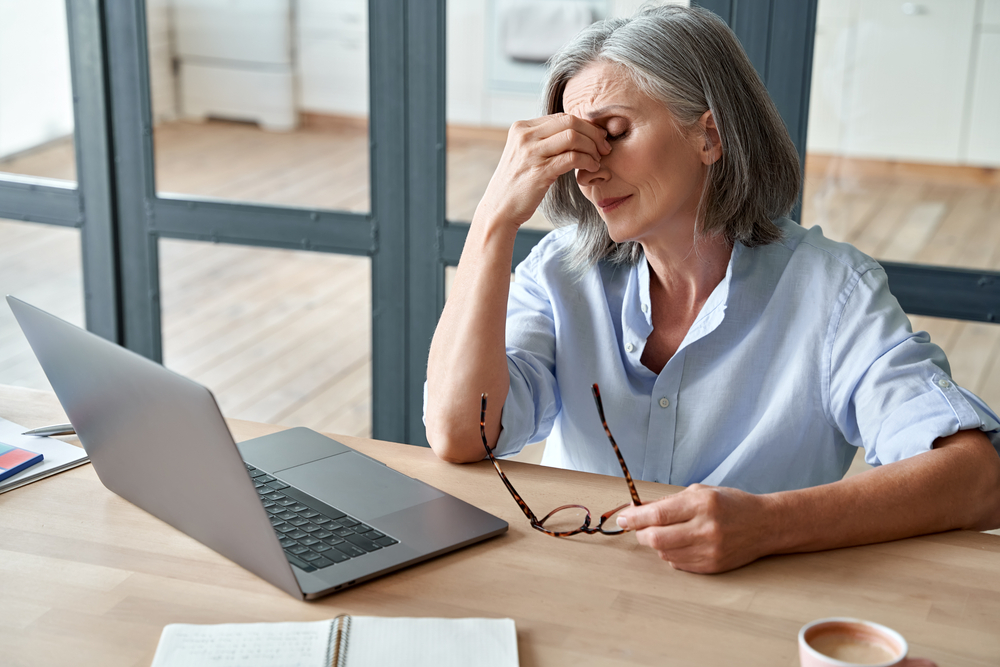
Dry eye is a common condition that occurs when the eyes do not produce enough tears or when the tears evaporate too quickly. It can lead to discomfort, irritation, and even vision problems if left untreated.
What are the Symptoms of Dry Eye?
The most common symptoms include a stinging or burning sensation in the eyes, redness, sensitivity to light, blurred vision, and a feeling of grittiness or foreign object in the eye. These symptoms can vary in severity and may worsen in certain environments or situations.
What are the Common Causes of Dry Eye?
There are several factors that can contribute to the development of dry eye. One of the most common causes is aging. As we get older, our tear production decreases, leading to a higher risk of dry eye. Hormonal changes, such as those that occur during menopause, can also contribute to dry eye.
Another common cause is prolonged screen time. Whether it's working on a computer, watching television, or using a smartphone, staring at screens for extended periods can cause the eyes to become dry and irritated. This is because we tend to blink less frequently when focusing on screens, which reduces tear production.
Additionally, certain medications can cause dry eye as a side effect. Antihistamines, decongestants, and antidepressants are among the medications that can have this effect. If you are taking any of these medications and experiencing dry eye symptoms, it is important to discuss it with your healthcare provider.
Environmental Factors that Contribute to Dry Eye
Environmental factors can also play a role in the development of dry eye. Dry and windy climates, as well as indoor heating or air conditioning, can cause the tears to evaporate more quickly, leaving the eyes dry. Dust, smoke, and other airborne irritants can further exacerbate the condition.
It is worth noting that contact lens wearers are more prone to experiencing dry eye. Contact lenses can disrupt the natural tear film and cause dryness and discomfort. If you wear contact lenses and are experiencing dry eye symptoms, it may be worth considering switching to a different type of lens or discussing other options with your eye care professional.
Medical Conditions Associated with Dry Eye
Certain medical conditions can increase the risk of developing dry eye. Autoimmune diseases, such as rheumatoid arthritis and Sjogren's syndrome, can affect the glands that produce tears and lead to dry eye. Diabetes, thyroid disorders, and vitamin deficiencies can also contribute to dry eye symptoms.
Additionally, eye conditions like blepharitis (inflammation of the eyelids) and meibomian gland dysfunction (a condition that affects the oil glands in the eyelids) can disrupt the normal functioning of the tear film and cause dry eye.
Lifestyle Habits that May Lead to Dry Eye
Certain lifestyle habits can contribute to the development of dry eye. Smoking, for example, can worsen dry eye symptoms as it can irritate the eyes and decrease tear production. Poor nutrition, especially a diet lacking in omega-3 fatty acids and vitamins A, C, and E, can also increase the risk of dry eye.
Excessive use of eye drops can be counterproductive and may actually worsen dry eye symptoms. Many over-the-counter eye drops contain preservatives that can irritate the eyes with prolonged use. It is important to consult with an eye care professional before using any eye drops for dry eye.
When to See a Doctor for Dry Eye
While mild cases of dry eye can often be managed with lifestyle changes and over-the-counter remedies, it is important to see a doctor if your symptoms persist or worsen. Your doctor may recommend prescription eye drops or other treatments to alleviate your dry eye symptoms.
It is especially important to seek medical attention if you experience severe pain, sudden changes in vision, or if your symptoms are affecting your daily activities. Your doctor can assess your condition and determine the best course of treatment for you.
Taking Care of Your Eyes and Preventing Dry Dye
Dry eye can be a frustrating and uncomfortable condition, but with the right knowledge and care, it can be managed effectively. By understanding the common causes of dry eye and taking steps to prevent it, you can keep your eyes healthy and comfortable. Remember to stay hydrated, take breaks from screens, and seek medical attention if needed. Your eyes will thank you!
If you are experiencing dry eye symptoms, consult with our professionals at Coastal Vision Medical Group in our Chino, Irvine, Long Beach, Orange, or Newport Beach, California office. Call (888) 501-4496 to schedule an appointment today.







